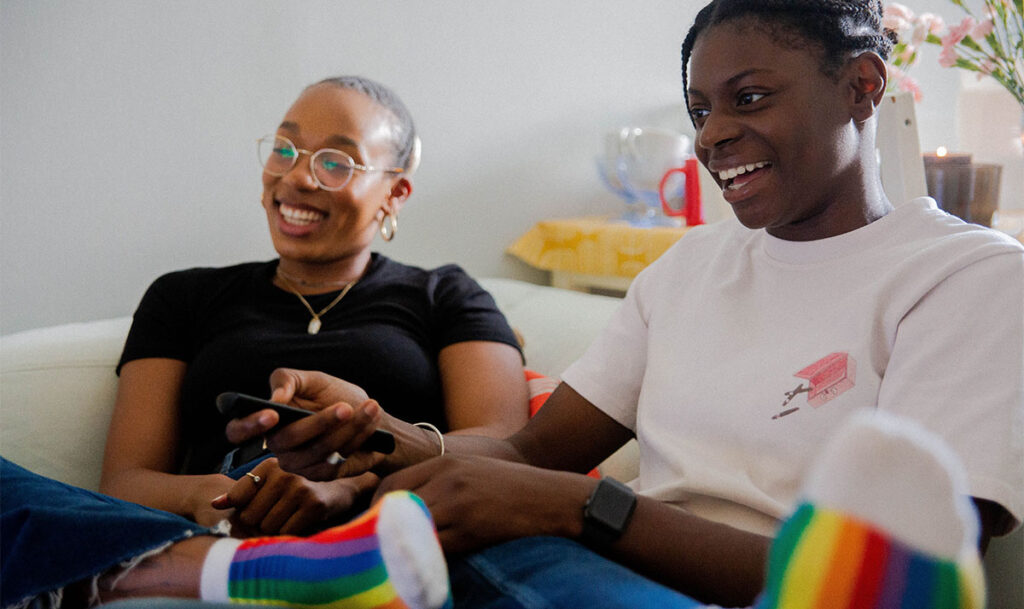Transform your relationship with these 12 Best communication tips. (Photos: Sept-commerical-Enrus @Unsplash)
Clear and effective communication is how we move forward, whether in personal relationships, business partnerships, or daily interactions. It can change how we feel about someone, shift our mindset, or trigger unwanted emotions. It’s not just about speaking out loud to be heard ( as if that ever really worked). But our body language and actions also convey messages that may contradict our words. Poor communication can cause misunderstandings and even ruin relationships.
Table of Contents
It’s essential to learn how to express yourself effectively and be mindful of your actions, even when it seems impossible to get your message across. With patience and persistence, you’ll improve your communication skills and grow your ability to be more self-aware.
Communication 101
Improving your communication skills can feel weird and daunting, but it’s worthwhile. The ability to convey your thoughts effectively is a valuable skill that can be refined with practice. We’ve rounded up some expert tips to help you take your communication skills to the next level. With these tools, you’ll become a pro at connecting with others and engaging in meaningful conversations. Remember that soft skills like communication are vital for any industry’s success.
Even big corporations offer workshops to help their employees improve in this area. Consider working with a counselor or coach to enhance your communication skills to strengthen your romantic relationships.
Let’s jump into these tips so you can unlock your potential to communicate more effectively.
1. Notice Body Language and Nonverbal Cues
Communication goes beyond the words we use. It’s not just about what you say but how and when you say it. Watch for body language, too—it can say a lot about how someone’s feeling.
As intelligent beings, we naturally pick up on vibes and whether or not we trust what someone is saying. Sometimes, our outward expression doesn’t match what’s going on inside.
Most of the time, we don’t even realize what triggers our emotions or responses. And we certainly can’t control what sets off others.
Our body language can influence the outcome of any conversation, both positively and negatively. When communicating with someone else, pay attention to your facial expressions, gestures, and posture. Open body language and eye contact demonstrate interest and respect. Conversely, crossing arms or avoiding eye contact may send the wrong message.
2. Communicate with Compassion
Improve Your Communication by Taking a Patient and Empathetic Approach. Before you speak, pause and breathe deeply to center yourself. Then listen attentively to the other person. Ask questions to clarify the conversation and ensure mutual understanding. Let them know you are paying attention by acknowledging their comments. To go the extra mile, demonstrate empathy by putting yourself in their shoes. This will help establish trust and diffuse any tension.
3. Ask Open-Ended Questions
Asking open-ended questions like “What do you think?” or “How can I help you?” encourages dialogue and promotes understanding. It also gives the other person an opportunity to express themselves freely without feeling like they’re being judged. Plus, actively listening to their responses builds a stronger connection between the two of you.
4. Communicate by Talking deeper
When someone is stressed, it’s crucial to listen to them carefully and pay attention to their tone of voice. It’s best to respond with a calm, lower-volume voice if they speak loudly and quickly with a high-pitched tone. If they are running at a 10, you want to dial it down to a 5. Research has shown that deep voices have a sense of authority and can create a feeling of security. This approach can help relax the situation and create a positive atmosphere for a more productive conversation. By responding with a deeper voice, you can avoid matching their frantic energy and instead develop a sense of trust and empathy. You can calm and diffuse the situation with your cool, collected demeanor.
Communication is everything! It’s the first thing we try to attempt as babies.
5. Take your time, don’t rush your communication.
Slowing down your speech and using strategic pauses can make a more substantial impact when responding to others. This approach emphasizes each word, making them more meaningful and validating your message. Additionally, it allows the listener to truly hear and understand the importance of what you’re saying. Consistently utilizing these techniques generates a composed and collected presence, ultimately leading to a mirrored response from your audience.
6. Take Ownership of your attitudes

Chose to be authentic and check yourself before you wreck yourself (Photo: Shingi Rice @Unsplash)
Successful communication requires taking responsibility for our attitudes and behaviors. Before communicating, you must check in with yourself and ensure you’re not communicating with bias or ego. Fear, hurt, and emotions can influence our communication style. Unhealed trauma, past narratives, and future speculations can also affect how we verbally and physically express ourselves.
To defuse conflicts, use “I” statements that focus on your feelings and needs without defining the other person. For instance, rather than saying, “You’re an asshole,” try saying, “I felt hurt when you said____.” Using “I” statements gives you ownership of your thoughts and feelings while taking responsibility for expressing them directly and respectfully. It also opens doors for better communication and understanding.
7. Explain where you are.
Sharing that information with others is okay if you’ve had a tough day. You don’t have to give specifics, but simply letting them know you’re coming from a problematic place can help prepare them. This allows them to be supportive and understanding. It also helps them realize that your mood isn’t about them and that you may need space to process things.
8. Listen and acknowledge the other’s feelings
Effective communication relies on active listening. This skill takes practice, patience, and compassion to set aside personal biases to focus on the speaker’s words, body language, and emotions. Reflecting on what was said and re-iterating with empathy shows the speaker that the message has been received and understood, leading to a deeper understanding of the conversation and possibly a connection.
Giving your full attention to the speaker is essential to validate their feelings and ensure they’re heard. Remember, sometimes, all a person needs is someone to listen. And in this role, you give them a safe space to express themselves.
9. Show some respect to them.
Showing others respect involves treating them how you want to be treated. It means recognizing and valuing their feelings, beliefs, and opinions without aggression or hostility.
Many cultures prioritize respect over love, so it’s essential to show respect to gain someone’s trust and receptiveness. Care also entails active listening without judgments or biases, which fosters understanding and acceptance.
Even if you don’t agree with someone, showing proper respect means being open to learning from their perspective without getting confrontational or dismissive. Remember that respect doesn’t always mean agreement. Agree to disagree.
10. Establish boundaries
Effective communication requires healthy personal boundaries, starting with establishing your own. When there is a misalignment in intentions, it is crucial to clarify your boundaries clearly and politely. Tact also plays a role in guiding the conversation back on track and ending it calmly if your boundaries are disrespected. Demonstrating self-respect safeguards you in the long run and may even deepen the level of trust in the relationship.
11. Summarize and end the conversation
At the end of any communication, it’s important, to sum up what was discussed and ask if the expectations were understood. If there is still tension or misunderstanding, it’s important to verbalize it and discuss ways to resolve it. This will help ensure that both parties walk away from the conversation feeling heard and respected. However, on occasion, if you feel like you are being baited and there seems to be no resolution, kindly state that it’s a conversation to be continued later.
Remember, communication is a two-way street, and how you handle the situation communicates with the other person how much tolerance you have before there is change. Demonstrating respect for the other person while upholding their boundaries means they must re-evaluate their communication skills. More often than not, having space to think before continuing the conversation can make an even better resolution.
12. Express gratitude
Finally, express your appreciation for the other person’s willingness to communicate with you. Acknowledging that the conversation was challenging but essential and showing gratitude will strengthen your relationship and create a more promising connection later. This will help ensure that both parties walk away from the conversation feeling heard and respected. Expressing gratitude is an effective way to end any communication on a positive note.
Improve your communication skills with these helpful tips. Maintaining good communication with loved ones can create a deeper, more intimate connection. Remember to be sensitive to their emotions and stay open-minded without being judgmental. Effective communication is an essential skill that improves understanding and personal growth.
As the saying goes, we discover more about ourselves through interactions. Always treat others respectfully; if they don’t reciprocate, that’s a form of communication.

